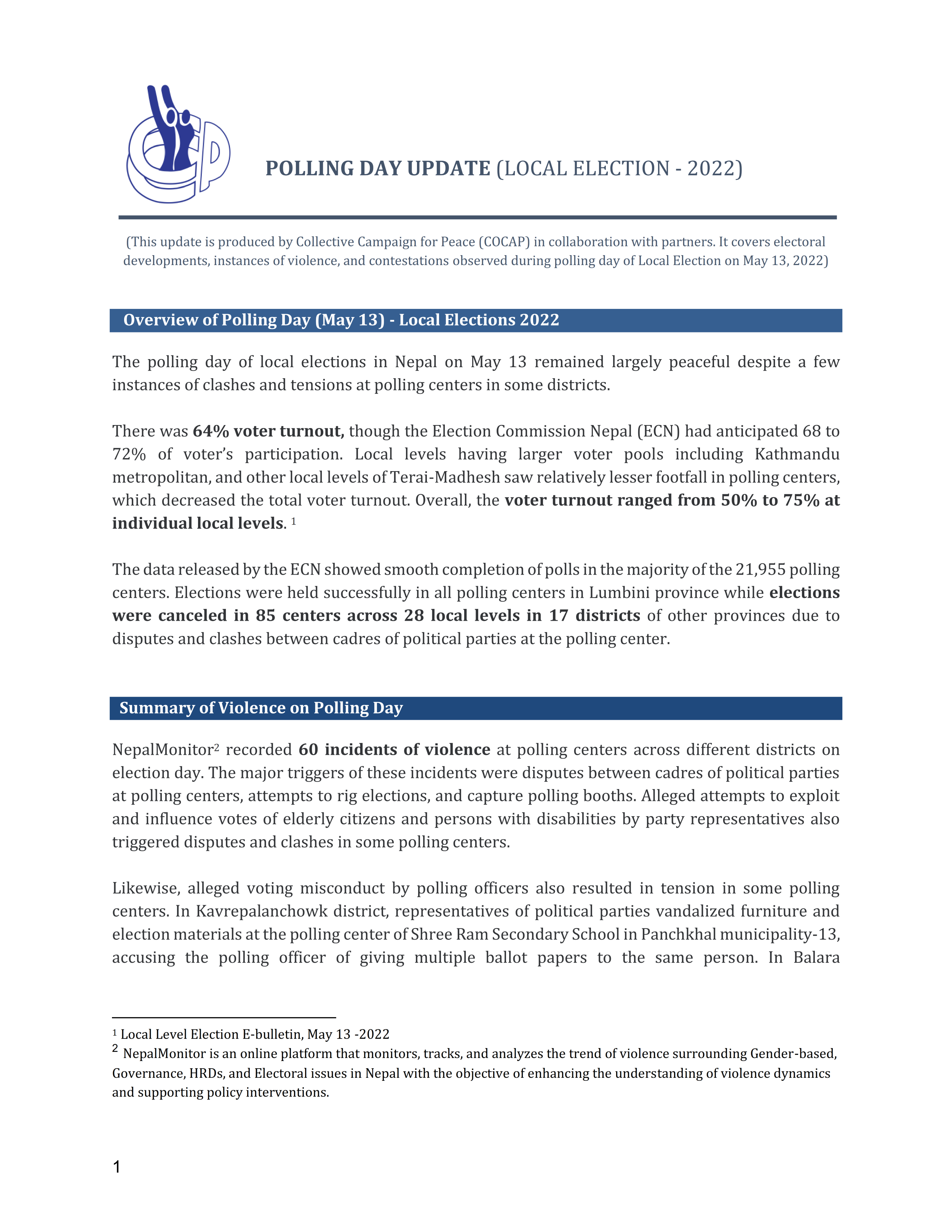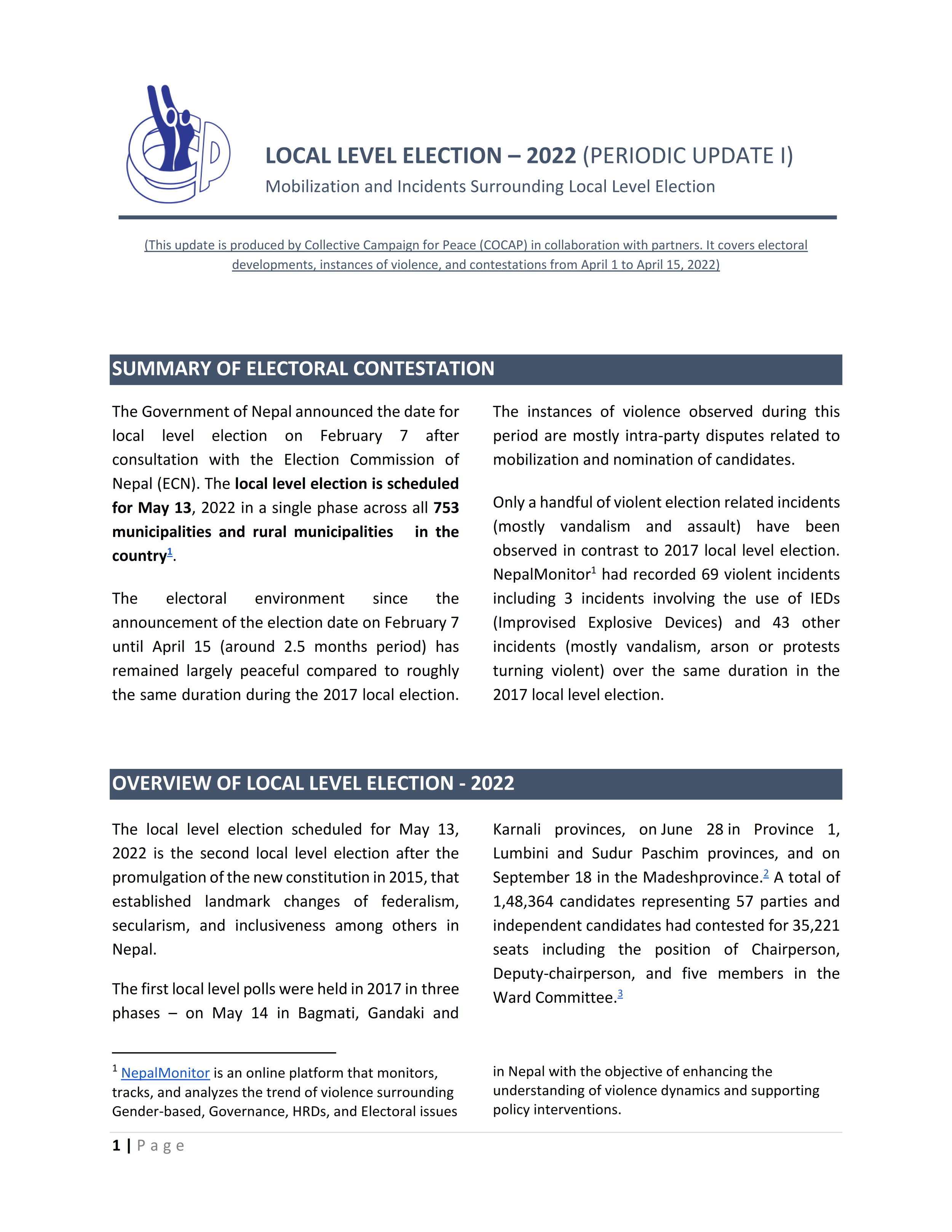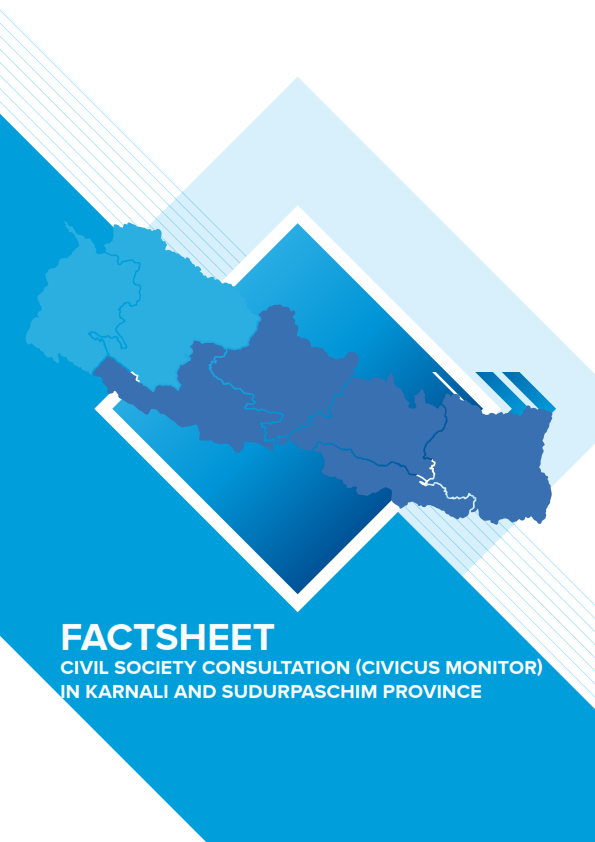Incident Reports
Is free expression on internet shrinking in Nepal? - Op-ed on freedom of expression in Nepal
2016-05-11
Globally internet has emerged as an inseparable and inevitable medium of exercising free speech. It is so far the most precious gift of the 21st century that science and technology have offered to promote the free flow of ideas and information regardless of frontiers. The phenomenal rise in the internet-based exercise of seeking, receiving, and imparting information and ideas from any part of the world, in a true sense, has superseded other traditional means of freedom of expression.
It is utterly unimaginable to separate the internet from freedom of expression and information and exercise free debate in isolation. The Internet has thereby become a life boat of freedom of expression – which is a core common human right guaranteed under international conventions and by virtually every constitutional bill of rights in the world including in Nepal.
With nearly half of the total population of Nepal using the internet for various purposes including communications, entertainment, and knowledge, the multi-stakeholders subject of internet freedom has drawn concerns from different quarters. Today the global village concept has been materialized when people from one corner of society can communicate their ideas and opinion to the rest of the world through the internet. The growing use of social media such as Facebook, Twitter, and online communication tools like Skype and Viber has deconstructed the practice of communications and opened up avenues for citizens to be a constructive part of governance from any part of the world, regardless of any borders.
Albeit the constitution of Nepal promulgated by the Constituent Assembly (CA) in 2015 has guaranteed the freedom of expression under the section of fundamental rights, there are still many lacks and lacunas restricting its practice. "The new constitution of Nepal has conspicuously removed the particular phrase 'online' from its Article 19(1) while stating that no publication broadcast of any means would be pre-censored", said ICT lawyer and Chairperson of Internet Society Nepal Chapter Chairperson Baburam Aryal, adding the missing of the phrase from the national charter that was mentioned in the interim constitution has provided a loophole for restricting the online exercise of freedom of expression.
Article 19 of the Constitution has mentioned 'Right to Communication,' as the fundamental rights. It reads: (1) No publication and broadcasting or dissemination or printing of any news item, editorial, feature article, or other reading, audio, and audio-visual material through any means whatsoever including electronic publication, broadcasting, and printing shall be censored". The exclusion of the word online from the proviso can be misinterpreted to limit the right to freely express their own ideas through the internet. "It is, therefore, a regressive constitutional provision on freedom of expression in Nepal", Aryal added.
He commented that the Online Media Operation Directive-2072 BS proposed by the government has also attempted to control online media. "The proposed policy has stipulated that no online portal can be operated without registration of its domain", which he said will kill the sense of new media. He noted the need for the operational management of internet-based (online) media through policy being cautious about the protection of freedom.
Echoing Aryal's views Chairperson of Online Journalists Association Prabesh Subedi said licensing may not work while regulating online media. "If we state such phrase in the policy it will be a ridiculous example in the world. So voluntary listing will be a good policy provision".
Moreover, another major legal document that the State has used frequently to harass internet-based freedom of expression practitioners is the Electronic Transaction Act (ETA) 2008. Various journalists and citizens have been arrested and detained by Nepal Police reasoning their Facebook posts and comments and news on media portals violated the ETA. Article 47 of the Act mentions: Publication of illegal materials in electronic form: (1) If any person publishes or displays any material in the electronic media including a computer, the internet which is prohibited to publish or display by the prevailing law or which may be contrary to the public morality or decent behavior or any types of materials which may spread hate or jealousy against anyone or which may jeopardize the harmonious relations subsisting among the people of various castes, tribes and communities shall be liable to the punishment with the fine not exceeding One Hundred Thousand Rupees or with the imprisonment not exceeding five years or with both.
These journalists and other citizens have been harassed in the name of cybercrime under the Electronic Transaction Act 2008 for merely disseminating news on a news portal, social media. "The ETA Act (47) is a sword which is being used to infringe freedom of expression in Nepal", said Asia-Pacific Coordinator of the International Federation of Journalists (IFJ) Ujjwal Acharya, adding it is suppression from the State to harass citizens for expressing their ideas and opinions on the internet and social media. "To operate online media from Nepal one has to register it in four government agencies", he said, calling for the State's role to be that of a facilitator rather than of controller in the name of the regulation.
He, however, lambasted journalists claim that they are only the defenders of freedom of expression arguing that such tendency and remarks also undermine the scope of freedom of expression in Nepal.
Superintendent of Police at Human Rights Cell of Nepal Police, Puja Singh, said it creates a problem when the intention is wrong while using the law. The practice of freedom of expression by the journalist and citizen should be regarded the same, she said.
Surprisingly the trend of website crackdown for its content is also coming to the fore which is a direct blow to the exercise of the right to seek, receive, and impart ideas through the internet. Chairman of the Internet Service Providers' Association, Suman Lal Pradhan, shared that the Association was frequently prodded to block many websites. According to him, around 100 websites were blocked in the recent past after the order from Nepal Telecommunications Authority (NTA). He further revealed that ISPs' Association was asked verbally to identify and block especially the pornographic websites.
"It somehow reflects the control mind-sets of the State on online operation in Nepal", said Taranath Dahal, Chairperson of Freedom Forum, which has been advocating for fostering of internet freedom as an important medium of freedom of expression. He suggests, "Time has come for multiple stakeholders to thoroughly debate on free speech on the internet and develop a tacit common understanding to protect digital freedom, and propel democratic values in this age of ICT."
Knowingly or unknowingly the internet-based practice of freedom of expression is receiving challenges galore though Nepal has ushered into the federal democratic republic political and governance system.
It is a fundamental pre-requisite for democracy and good governance that stimulates free debate and keep the citizens' watchdog role in modern state affairs. Now is the time to augment space for internet freedom averting challenges on its use and enable the citizenry to keep their scrutiny on public affairs.
National/Online Media
Related Reports
Governance / Kathmandu
Medical education concern committee protest by banging plates and whistling
September 08, 2023
Governance / Darchula
Workers padlock school citing non-receipt of wages for more than a year
Sudurpashchim, Darchula, Naugad
August 29, 2023
Governance / Sunsari
Prohibitory order issued in Dharan, tightening at entry points
Province 1, Sunsari, Dharan
August 25, 2023
Governance / Morang
Students of Eastern College in Biratnagar on protest
Province 1, Morang, Biratnagar
August 23, 2023
Related Trend Analysis
Analysis

THE NEPAL PEACE MONITOR ANNUAL REVIEW: 2020
October 25, 2021
Human Trafficking / LGBT+ Rights / GBV / Political / Children’s Rights / Senior Citizens’ Rights / HRD Issues / Human Rights / Interpersonal Violence / Governance / Covid-19 / Civic-Space / PwD

_001.png)




